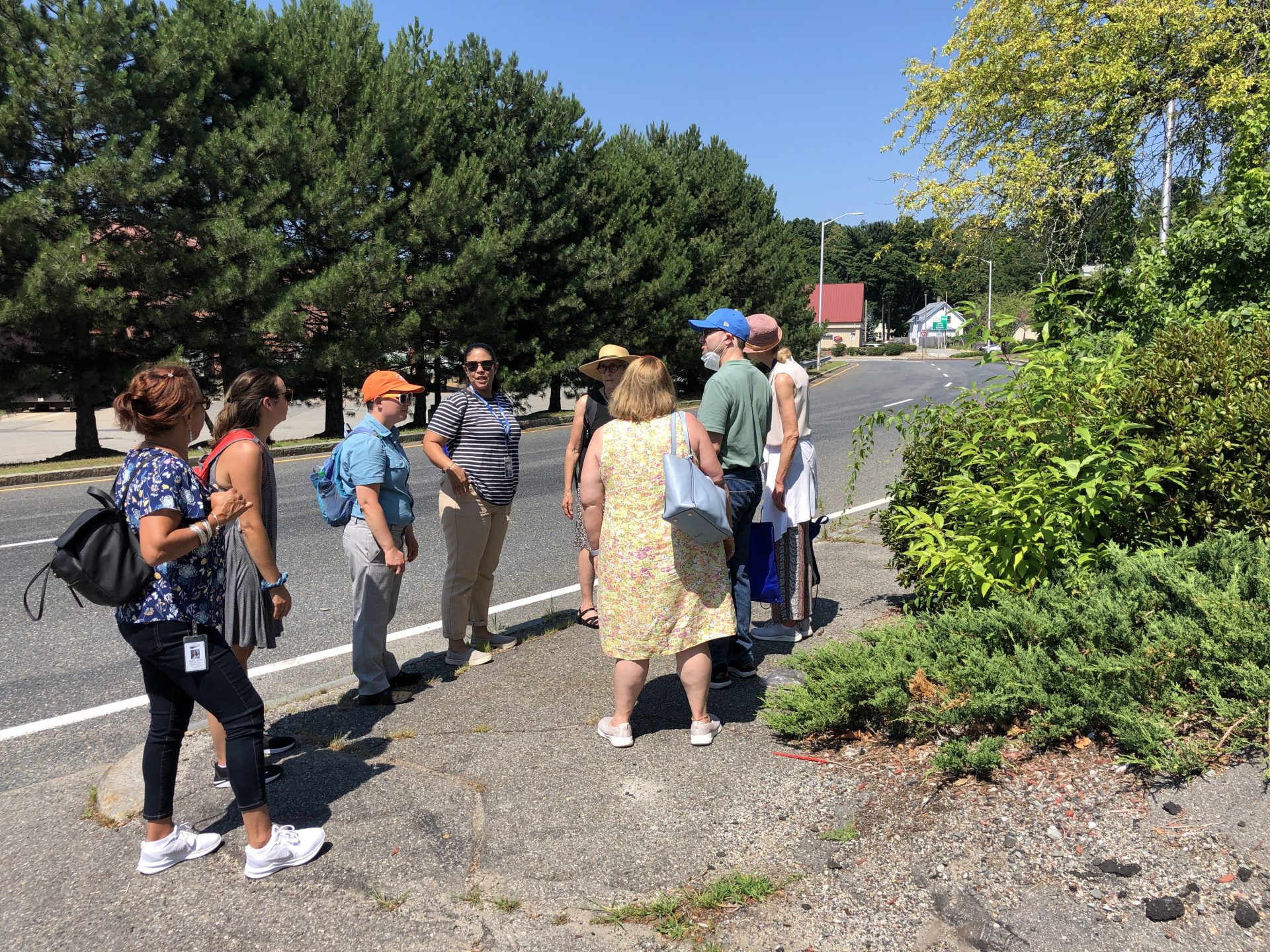Travel training – teaching older adults, people with disabilities, and others the skills and information they need to ride fixed-route public transit independently and safely – requires the ability to walk (or roll) from your home to the bus stop, and from the bus stop to your destination.
Walkability experts and advocates from WalkBoston, a nonprofit in Massachusetts with over 30 years of experience, are partnering with travel trainers across the state to take a deeper dive into the synergy between walkable communities and travel training.
Massachusetts Travel Instruction Network
The Massachusetts Travel Instruction Network (MATIN) is a peer networking community for anyone who does travel training or plans to start offering travel training in Massachusetts. Members include staff of transit authorities, staff of aging and disability services agencies that include travel training as part of their wraparound services, and transition specialists and educators who work with students with disabilities. The network is a project of MassMobility, a statewide initiative out of the Massachusetts Executive Office of Health and Human Services that provides information and technical assistance to organizations working to expand mobility for older adults, people with disabilities, and others who lack access to transportation.
MassMobility launched MATIN in 2013, when many transit authorities across Massachusetts were independently restarting or launching travel training programs. When asked what would be helpful to them, the travel trainers requested an email list and regular meetings so they could learn from each other. In the intervening decade, the network has provided informal training opportunities for new travel trainers, a sounding board for experienced travel trainers to bounce ideas off of peers, a forum for ongoing professional development, and an opportunity for others to get input from travel trainers across the state. For example, when the Massachusetts Department of Transportation compiled guidance on performance measures for travel training, they asked MassMobility to synthesize input from the travel trainers. So in 2021, when WalkBoston mentioned an interest in working with travel trainers, MassMobility immediately suggested MATIN.
Walk Audit Training
WalkBoston began working with the travel trainers by attending several meetings of MATIN and asking the travel trainers what would be useful. WalkBoston has followed up in several ways.
First, we held an interactive virtual “Ped 101” walk audit information session with the trainers. “Ped101” is a primer on the built environment (i.e., the streets and sidewalks) that gives participants information about what goes into creating safe, walkable places and helps people identify different features of a roadway that can impact how safe it is to walk.
Following up on the virtual session, WalkBoston then led a walk audit in Worcester for travel trainers from Worcester, New Bedford, Lawrence and Boston, along with staff from MassMobility and Easterseals staff affiliated with the National Center for Mobility Management. The walk audit was specifically designed to help the travel trainers learn how to work with their transportation agencies to improve the built environment in the communities they serve to make it safer and easier for their clients to walk to and from transit.
Among the points of lively discussion were:
- Inexpensive and “easy” fixes such as minor sidewalk repair and trimming of vegetation that blocks sidewalks;
- Operational changes such as finding safer locations for bus stops and improving snow shoveling of sidewalks, transit stops, and parking lots;
- Moderate cost capital projects like installation of new crosswalks with ADA compliant curb ramps and detectable warning panels;
- More complex projects – like road diets – to slow traffic and create safe crossings on busy roads.
- The opportunity that walk audits have for mobility management professionals to advance their knowledge of complete street topics.
The travel trainers lent their expertise in transit operations, discussed the safety (and lack thereof) of walking through parking lots, and shared challenges of finding walking routes that are safe for their wide variety of clients with different accessibility needs, such as routes that are safe for people with vision loss, using wheelchairs, and with cognitive disabilities.
In addition to their interest in learning how to identify necessary changes in the built environment, the travel trainers asked for a tool to identify who to speak with about the issues they are seeing on community streets. WalkBoston has now created a new “How to Report a Problem” online map that provides information about roadway ownership in Massachusetts and the various agencies that are responsible for the sidewalk and road conditions. A similar map could be created for any state that would help travel trainers and community residents help to solve walkability problems.
WalkBoston is looking forward to continuing our work with the travel training community, and bringing their deep compassion for the lived experience of their clients into our advocacy. Our work with the travel trainers is supported by an Age-Friendly Walking grant funded by Point32Health. Mobility management professionals are encouraged to learn about similar walk and pedestrian related projects in their own communities.


